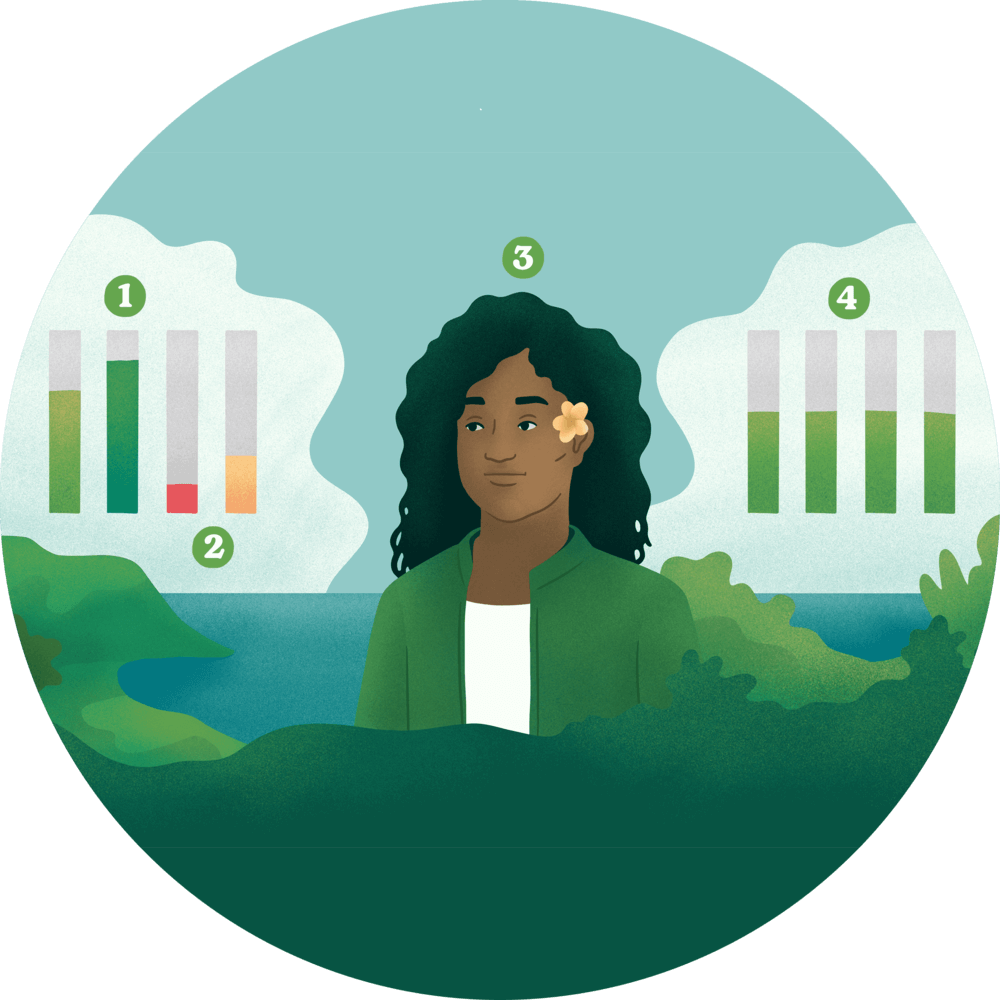
Balancing Mood
Mood Balancing is a tool that gives you insight into how what you’re doing affects your mood. It then recommends activities that can improve how you’re feeling.

What is Balancing Mood?
It is normal for your mood to change - sometimes you’ll know why but sometimes it’s unclear. Balancing Mood can help give you insight into how what you're doing affects your mood. It then recommends activities that may improve how you’re feeling.
How does it help?
We know that having a range of activities in your life will support you to feel good.
You don’t need to cram all the right activities into a day or even a week, but it is helpful to be aware of those you need more or less of. This is what the Balancing Mood tool does – it helps you stay aware of what activities you could do to improve your mood.

FAQs
What are mood swings?
These are changes in a person's feelings, rather than actually being about mood (e.g. from happy to grumpy minute-to-minute). Your mood is your overall level of emotional energy, which is long-lasting and doesn’t often respond quickly to things that happen unless the circumstance is very important to you.
Why does my mood change so fast?
Often people are experiencing fast changes in their emotions, rather than fast changes in their mood. Your mood is your overall level of emotional energy, which is long-lasting and doesn’t respond quickly to things that happen. For example, you might wake up in a bad mood (i.e low emotional energy) and it lasts until the afternoon. On the other hand, emotions like frustration or happiness come on quickly when something happens.
Emotions are related to your mood. For example, if you’re feeling low then you may get more easily frustrated with people talking to you.
Why are my moods so up and down?
The natural rhythm of your mood goes up and down, even if your life is going well and you’re being as healthy as you can. However, you can try to manage the amount that it goes up and down. Your mood can be influenced by what is happening to you right now, your past experiences, diet, sleep, exercise, hormones, and much more.
Potential ways to improve your mood can include: doing a balance of activities, getting out in nature, connecting with friends and whānau, listening to music, seeking help, getting good sleep, and exercising regularly amongst many other things. This is easier said than done, but it’s possible to work on all these things over time.

Try Balancing Mood now
Small Steps Toolbox
These tools have been developed to help with feelings of anxiety, stress, or low mood. Each tool only takes a few minutes. Health and wellbeing is an ongoing journey - so try them out and see what works for you.
Understanding Loneliness
Loneliness is a common feeling we all get from time to time. The tool asks you when you feel lonely and gives insights on why or what you can do about it.
Mindful Watching
During this mindfulness exercise, you’ll be guided by relaxing audio to calmly notice different visual aspects of images and apply this to your surroundings.
Reframing Thoughts
This tool can help to identify unhelpful patterns in your thoughts and beliefs and reframe them over time to help you feel better and make decisions that support your overall sense of wellbeing.
Improving Sleep
Improving Sleep is a quiz that helps you explore the things you can do or avoid that can lead to a better quality sleep. There are a variety of tips available so you can choose something that suits your lifestyle.
Identifying Signals
During this exercise, you’ll be guided to identify sensations in your body that you often experience when feeling upset. You can use these as signals to react differently, use a tool, or engage in self-care.
Supporting Others
Supporting Others gives you tips on what you can say or do when you’re helping someone who’s going through a hard time.
Gratitude Practice
Learn to appreciate the small things in life through practising gratitude. Doing this regularly can help lift your mood and make you feel happier.
Muscle Relaxation
Teach your body how to relax better through muscle relaxation. The key is learning to apply this skill in everyday life to the entire body so that you’re not tensing muscles when you don’t need to.
Deep Breathing
This reflective technique involves slowly breathing in and out to help you feel calmer and more relaxed. This tool is guided by an animated image that inflates and deflates.
Active Listening
This skill involves fully focusing on what a person is saying, rather than selectively hearing. In this exercise, you’ll practice listening and develop an awareness of when you’re not paying attention.
Building Self-Worth
This tool helps you on your journey to gain self-worth. Go through the Building Self-Worth card deck for energetic, reflective, or inspirational activities.
